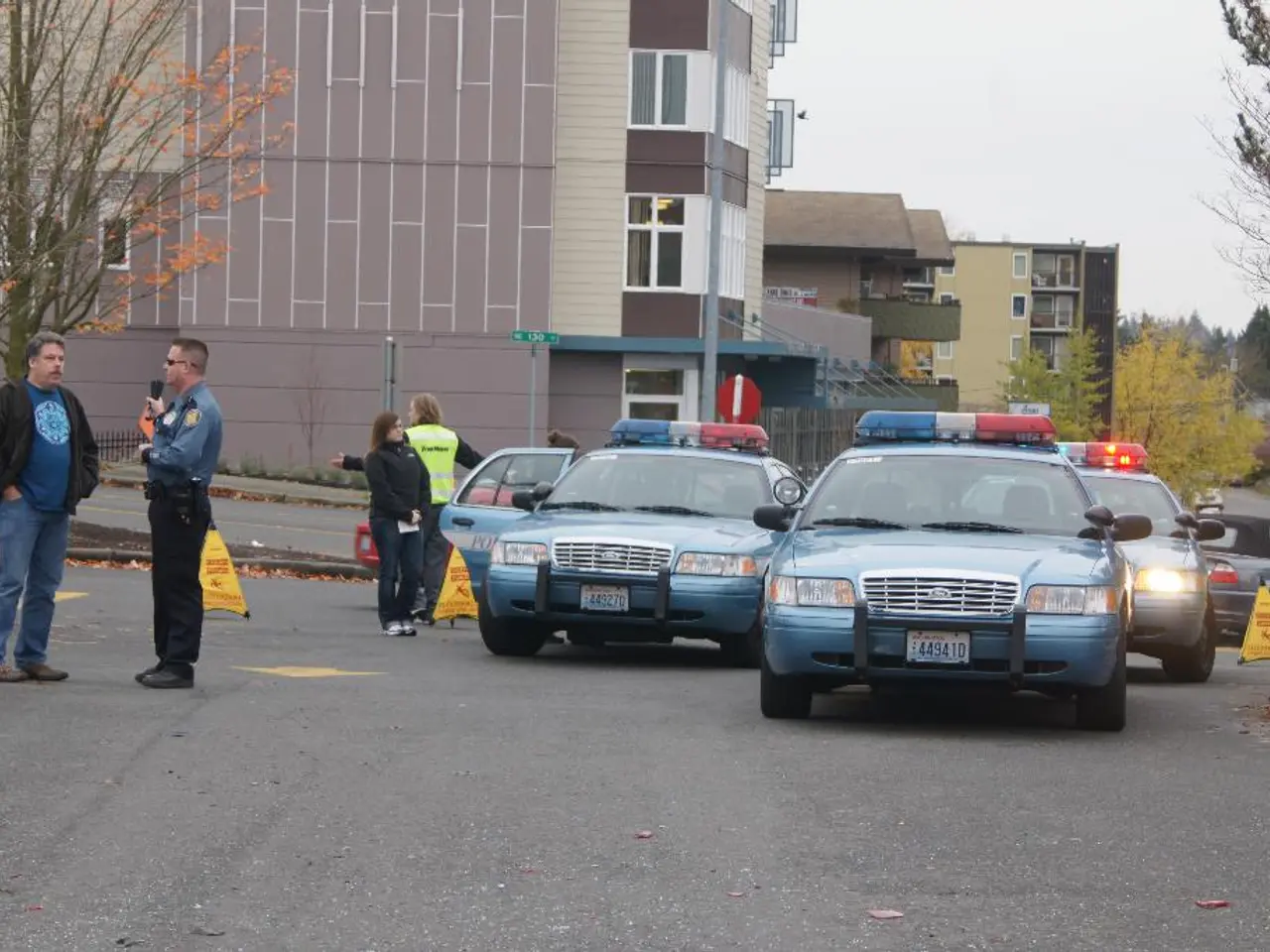Enhanced Security for the Citizens in the 2025 Federal Budget: Significant Reinforcements Implemented
In an effort to address the growing challenges posed by extreme weather, major technical disasters, and geopolitical tensions, the Federal Office for Civil Protection and Disaster Assistance (BBK) in Germany has announced a series of key projects and initiatives. These initiatives aim to enhance societal resilience, raise awareness, and ensure the continuity of essential services under crisis conditions.
One of the notable efforts is the Sustainable Disaster Management Innovations project, which supports the development of climate-friendly solutions in disaster response. A prime example is 'Henry 2.0,' a catering trailer that provides flexible support during disasters, incorporating renewable energy and promoting sustainable practices.
The BBK is also collaborating with projects like AMAREX to enhance urban climate resilience. This collaboration involves the development of digital planning tools that help cities manage rainwater effectively, incorporating technical, ecological, and social data to guide climate-resilient urban planning.
Civil protection infrastructure is another focus area for the BBK. Germany maintains a network of public shelters and bunkers, with ongoing projects to refurbish older bunkers and incorporate new-build protective shelters in residential buildings. Currently, there are 579 public shelters with significant capacity to protect civilians during emergencies.
The BBK is also investing in measures to improve infrastructure resilience, although guidelines are still evolving in Germany. The emphasis is on risk assessment and reconstruction approaches that aim to prevent repeat disasters and consider the vulnerabilities of infrastructure and user groups.
Other initiatives include the procurement of measuring technology for hazardous substances, the acquisition of new vehicles for supplementary disaster protection, pilot funding for the equipment of public places of refuge in the fiscal year 2026, and campaigns for self-protection to ensure comprehensive and contextualized dissemination of emergency preparedness recommendations to the population.
A modern protection room concept is being developed by the federal and state governments to quickly identify and make usable protection possibilities in Germany. Additionally, investment will continue in the MoWaS system, the NINA warning app, cell broadcast, and the expansion of the siren network to enhance population warning.
Furthermore, additional financial resources will be allocated to strengthen the resilience of society, ensuring that the BBK's strategy integrates sustainable innovations, urban climate adaptation, and robust civil protection infrastructure to address the multifaceted challenges posed by the current global climate and geopolitical landscape.
The BBK's strategy includes the allocation of additional financial resources to integrate sustainable innovations, addressing the need for climate-friendly solutions in disaster response, such as the development of Henry 2.0, a catering trailer incorporating renewable energy and sustainable practices.
Moreover, the BBK is collaborating with projects like AMAREX, which aims to enhance urban climate resilience by developing digital planning tools that incorporate technical, ecological, and social data, contributing to climate-resilient urban business practices.




